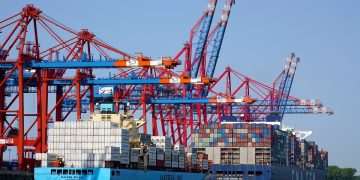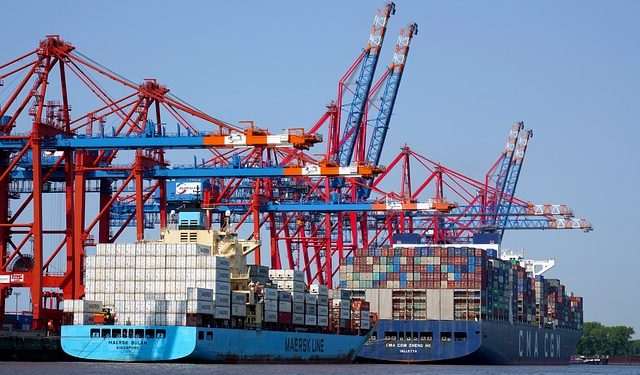In an era of global commerce and complex logistics, efficient supply chain management has become more crucial than ever. Enter blockchain technology – a revolutionary approach that promises to transform the way we track, manage, and optimize supply chains. This article explores how blockchain is reshaping supply chain management, offering unprecedented levels of transparency, efficiency, and security.
Understanding Supply Chain Management and Its Challenges
Before delving into blockchain’s impact, it’s essential to understand what supply chain management entails and the challenges it faces.
What is Supply Chain Management?
Supply chain management (SCM) involves the oversight and control of all activities related to the flow of goods and services, from raw material sourcing to final product delivery. It encompasses planning, execution, control, and monitoring of supply chain activities.
Current Challenges in Supply Chain Management
- Lack of Transparency: Difficulty in tracking products from origin to destination.
- Inefficiency: Manual processes and paperwork slow down operations.
- Data Silos: Information fragmentation across different parties.
- Fraud and Counterfeiting: Difficulty in verifying the authenticity of products.
- Delays in Payment: Complex payment processes across international borders.
Enter Blockchain Technology
Blockchain technology offers a decentralized, transparent, and immutable ledger that can address many of these challenges.
What is Blockchain?
At its core, blockchain is a distributed database that maintains a continuously growing list of records, called blocks, which are linked and secured using cryptography. Each block contains a timestamp and transaction data, which once recorded, cannot be altered retroactively.
Key Features of Blockchain Relevant to Supply Chain Management
- Decentralization: No single entity controls the entire chain.
- Transparency: All participants can view the entire chain of transactions.
- Immutability: Once recorded, data cannot be altered without consensus.
- Smart Contracts: Self-executing contracts with the terms directly written into code.
How Blockchain is Transforming Supply Chain Management
Blockchain technology is addressing key pain points in supply chain management:
1. Enhanced Traceability and Transparency
Blockchain provides an immutable record of every transaction and movement within the supply chain.
Benefits:
- Real-time tracking of products from origin to destination
- Easier identification and resolution of issues
- Increased consumer trust through product provenance
Example: Walmart uses blockchain to trace the origin of food products, reducing the time to track produce from days to seconds.
2. Improved Efficiency and Reduced Paperwork
By digitizing and automating processes, blockchain significantly reduces the need for manual paperwork.
Benefits:
- Faster processing times
- Reduced human error
- Lower administrative costs
Example: Maersk and IBM’s TradeLens platform uses blockchain to streamline global trade, reducing transit time for shipments by 40%.
3. Enhanced Security and Reduced Fraud
The immutable nature of blockchain makes it extremely difficult to tamper with records.
Benefits:
- Reduced counterfeiting and fraud
- Increased security of sensitive data
- Better compliance with regulations
Example: De Beers uses blockchain to track diamonds from mine to retailer, ensuring they are conflict-free.
4. Improved Inventory Management
Blockchain enables real-time visibility of inventory levels across the supply chain.
Benefits:
- Optimized stock levels
- Reduced waste and obsolescence
- Better demand forecasting
Example: Alibaba’s Food Trust Framework uses blockchain to manage inventory and reduce food waste in its supply chain.
5. Faster and More Secure Payments
Smart contracts can automate payments once predefined conditions are met.
Benefits:
- Reduced payment delays
- Lower transaction costs
- Improved cash flow management
Example: IBM’s Blockchain World Wire facilitates faster cross-border payments in the supply chain.
Challenges in Implementing Blockchain in Supply Chain Management
While the potential benefits are significant, there are challenges to overcome:
- Scalability: Ensuring the blockchain can handle a high volume of transactions.
- Interoperability: Making different blockchain systems work together seamlessly.
- Regulatory Compliance: Navigating varying regulations across different jurisdictions.
- Initial Costs: High upfront investment in technology and training.
- Resistance to Change: Overcoming reluctance to adopt new technologies.
The Future of Blockchain in Supply Chain Management
As blockchain technology matures, we can expect to see:
- Increased Adoption: More companies will integrate blockchain into their supply chains.
- Integration with IoT and AI: Combining blockchain with other technologies for enhanced capabilities.
- Standardization: Development of industry-wide standards for blockchain in supply chain.
- Sustainability Tracking: Using blockchain to monitor and improve supply chain sustainability.
- Consumer Empowerment: Enabling consumers to verify product authenticity and origin easily.
Case Studies: Successful Blockchain Implementations in Supply Chain
1. IBM Food Trust
IBM Food Trust uses blockchain to create visibility and accountability in the food supply chain. Major retailers like Walmart, Carrefour, and Albertsons have joined the network.
Results:
- Reduced time to trace food origin from 7 days to 2.2 seconds
- Improved food safety and reduced waste
- Enhanced consumer trust
2. TradeLens (Maersk and IBM)
TradeLens is a blockchain-enabled shipping solution that promotes more efficient and secure global trade.
Results:
- Reduced transit time for shipments by 40%
- Decreased administrative costs
- Improved visibility across the entire supply chain
3. Everledger
Everledger uses blockchain to track valuable assets like diamonds, fine wines, and art throughout their lifecycle.
Results:
- Reduced fraud in the diamond industry
- Improved transparency in luxury goods supply chains
- Enhanced consumer confidence in product authenticity
Conclusion
Blockchain technology is poised to revolutionize supply chain management, offering solutions to long-standing challenges in transparency, efficiency, and security. By providing an immutable and transparent record of transactions, blockchain enables real-time tracking, reduces fraud, streamlines processes, and builds trust among all participants in the supply chain.
While there are challenges to overcome, the potential benefits of blockchain in supply chain management are too significant to ignore. As more companies adopt this technology and overcome initial hurdles, we can expect to see a transformation in how global supply chains operate.
For businesses looking to stay competitive in an increasingly complex and globalized market, understanding and leveraging blockchain technology in supply chain management will be crucial. It’s not just about improving current processes; it’s about reimagining what’s possible in supply chain management and creating new value for businesses and consumers alike.
As we move forward, the integration of blockchain with other emerging technologies like IoT, AI, and machine learning promises to unlock even greater potential. The future of supply chain management is digital, decentralized, and data-driven – and blockchain is at the heart of this transformation.









































